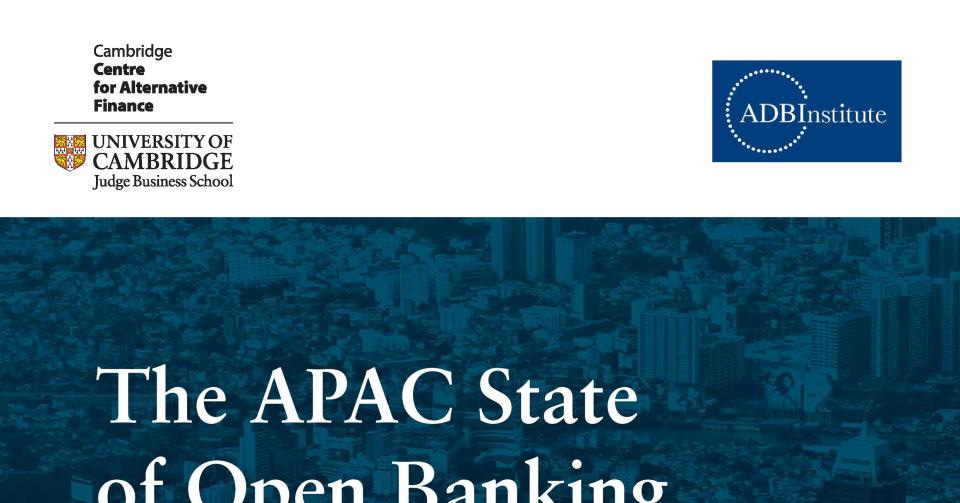Reports: What’s fueling APAC’s Open Finance revolution?; Commercial Cards: A Strategic B2B Payment Tool; Open Banking’s Global Shift Toward Open Finance;
Let’s dive into this week’s curated collection of fintech reports, whitepapers, and expert guidelines in the latest edition of Fintech Wrap Up. Every resource featured is available for download
Insights & Reports:
1️⃣ Founders vs. Investors: Two Faces of Italian FinTech Funding
2️⃣ Embedded Intelligence in Fintech: Innovation Must Be Matched by Trust
3️⃣ What’s fueling APAC’s Open Finance revolution?
4️⃣ Open Banking’s Global Shift Toward Open Finance
5️⃣ Commercial Cards: A Strategic B2B Payment Tool
6️⃣ Potential Economic Role of CBDCs and Euro-Denominated Stablecoins
7️⃣ Reimagining Financial Operations with Generative AI and Autonomous Agents
TL;DR:
Welcome to the latest edition of Fintech Wrap Up—your quick scan of the trends shaping finance.
In Italy, fintech fundraising is maturing but remains challenging. Founders want faster decisions and strategic support, while investors prioritize scalability and compliance. Although 69% of founders secured equity deals, many still rely on personal networks and face tough terms. Cross-border interest is rising, with both sides favoring foreign partners for speed and scale.
Across Europe, AI is embedding deeper into financial services. Banks like NatWest and Stripe are deploying AI agents, but innovation alone isn’t enough. Trust, transparency, and governance are now critical as regulators introduce new frameworks like PSD3 and DORA.
In APAC, Open Banking is evolving into Open Finance, with countries like India and Singapore leading the charge. Financial inclusion—not just competition—is the core focus, though regulatory maturity varies. Market-driven models are giving way to hybrid approaches combining innovation and oversight.
Open Finance globally is expanding access to savings, insurance, and investment data. The UK, Brazil, and India are ahead, but fragmentation and low trust slow adoption elsewhere. The opportunity? A fully connected, user-centric financial ecosystem.
Commercial cards are gaining traction as strategic B2B tools, helping buyers manage cash flow and giving suppliers faster settlement and better reconciliation. Priorities are shifting from rewards to working capital and automation.
Lastly, generative AI agents are transforming back-office operations. These digital teammates are handling reconciliations and SWIFT messages at scale. Leading firms are redesigning roles to work alongside AI—setting a new standard in operational resilience.
Thanks for reading Fintech Wrap Up!
Insights
Reports
Founders vs. Investors: Two Faces of Italian FinTech Funding
In 2025, Italian FinTechs stand at a crossroads: the ecosystem is maturing, the number of players is rising, and capital—while available—is more selectively allocated.
This report explores fundraising from two perspectives. Founders seek faster decisions, strategic support, and boldness from Investors—especially early on. Investors, in turn, expect scalable visions, sustainable models, and regulatory readiness. Both sides agree: fundraising in Italy is tough and complex.
Fundraising Trends (2022–2024)
69% of Founders closed at least one equity deal; 83% of Investors participated in at least one. Still, 1 in 4 Founders raised less than expected. Fundraising relies heavily on personal networks—used by 75% of Founders and 80% of Investors.
Key decision drivers: team quality, scalability, and business model. But 26% of Founders faced tough contract terms; Investors flagged weak strategic vision. Regulatory compliance is now critical for 52% of Founders and 68% of Investors.
The Untold Story: Those Who Didn’t Raise
Many who didn’t raise funds chose not to try, focusing instead on growth via revenue (75%). Meanwhile, 43% of Investors held back due to a lack of compelling targets.
Of those who failed despite trying, 38% cited lack of strategic connections. Interestingly, this group placed less emphasis on team quality than successful fundraisers.
Italian vs. Foreign Capital
90% of Founders rely on Italian capital, though 40% include foreign investors. Just 5% of Founders and 20% of Investors consider Italy easier than global markets. Half of Founders prefer foreign Investors for speed and clarity; 49% of Investors prefer foreign FinTechs for scalability.
Geography matters less now: 55% of Founders and 45% of Investors are open to both local and international partners.
Team Evaluation Gaps
Founders value tech and product skills (75%), while Investors prioritize leadership (75%). Entrepreneurial experience is a shared trust signal—45% of Founders had prior ventures, and 90% of Investors value this. Diversity ranks low: only 37% of Founders and 38% of Investors see it as impactful.
Keep reading with a 7-day free trial
Subscribe to Fintech Wrap Up to keep reading this post and get 7 days of free access to the full post archives.



